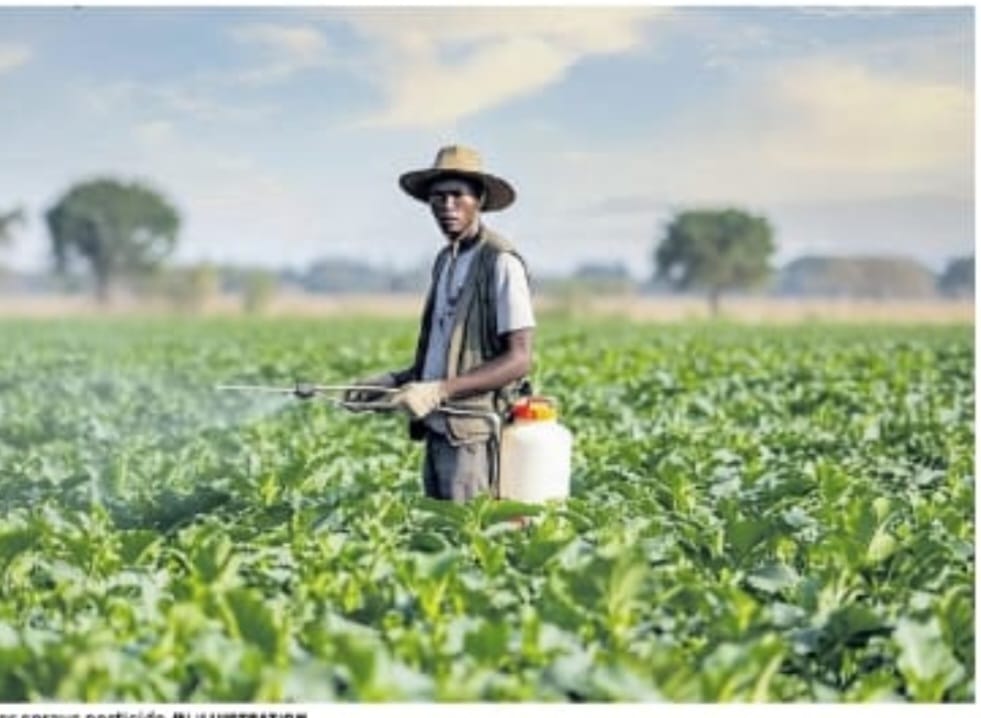
Kenya faces massive crop losses, rising food insecurity and a projected Sh1 trillion economic hit over the next decade, following the government’s withdrawal of eight pesticide ingredients in 2023, a new report warns.
The withdrawal of the ingredients, found in over 140 pest control products, could also lead to a 7.28 per cent drop in GDP in 2025 alone.
The policy document titled, ‘Impact assessment on the withdrawal of eight active ingredients and associated pest control products in Kenya’, reports the wide-ranging consequences of the ban.
It was commissioned by the Agrochemical Association of Kenya under its Grow initiative and CropLife Kenya.
“This is not just about pesticides; it’s about food security, farmer incomes and national stability,” AAK CEO Eric Kimunguyi, said.
“The ban was implemented without a clear transition plan or effective alternatives, leaving farmers exposed.”
The study surveyed 155 smallholder farmers, interviewed 67 experts and exporters and reviewed literature on pest prevalence, resistance and alternative pest control methods.
Kenya’s tropical climate and rising temperatures have intensified pest pressures. Data shows that a 2°C increase in temperature can push pest-related crop losses to 90 per cent without effective control.
Pests like the coffee berry borer have exploded, increasing 2.5 million-fold from 1984 to 2011, while invasive species like Tuta absoluta (tomato leafminer or tomato pinworm) and fall armyworm have devastated crops since arriving in 2013 and 2017 respectively.
The impact analysis warns that farmers are already feeling the pinch. Over 57 per cent said they lose income to pests every year, while half lose food.
Nearly all respondents (97.4%) use pesticides and 47 per cent said lack of access to them would reduce crop income by more than 75 per cent.
The withdrawal leaves 13 crop pest pathways with no effective control options and 20 others with only one remaining option, many of which will lose efficacy within a few years due to pest resistance.
Key crops affected include maize, wheat, potatoes, tomatoes, coffee and French beans.
"Some of these products were removed despite having no confirmed risks to human or environmental health," the report notes, adding that most of the withdrawals appear to follow the EU’s precautionary principle, not Kenya’s risk-based pesticide regulation system.
For example, wheat now has only one fungicide option left to combat leaf rust, a disease that typically develops resistance within two to three growing seasons. Without intervention, control for the disease could vanish by 2026.
The report estimates that the withdrawal will reduce agricultural producers’ income by 17.6 per cent in 2025, with smallholders – nearly half of whom live in poverty – bearing the brunt.
At 2022 prices, the total income loss to farmers in 2025 is projected at Sh124.6 billion, growing to Sh487.8 billion by 2034.
Additionally, households will incur Sh183 billion in food replacement costs in 2025, as they switch from growing for market to producing food for home consumption.
“Kenyan farmers sell just 26 per cent of their produce, so any decline in yield also hits household food supply hard,” the report states.
Crops affected by the ban contribute 63 per cent of Kenya’s daily calorie intake. Without imports, the average caloric intake per person could fall to 1,872 in 2025 and 1,767 by 2034 – among the lowest globally.
“This could trigger a national nutrition crisis,” said a public health expert quoted in the report. “Micronutrient deficiencies, anaemia, stunting and even higher cancer and diabetes rates are likely outcomes.”
The economic fallout also threatens exports. Four of the country’s five top exports, namely tea, coffee, cut flowers and fruits, will see production drops. Export earnings are projected to fall by $492.7 million in 2025 and $1.77 billion by 2034.
More worrying, some banned pesticides were critical for managing EU-listed quarantine pests. Their removal could see crops like snow peas, chillies and cucumbers blocked from EU markets, leading to an estimated export loss of Sh1.43 trillion over 10 years.
The report concludes that Kenya’s regulatory shift appears influenced by external trade pressures rather than national food security.
“The decision to ban some of these products seems more aligned with EU trade rules than Kenya’s food security interests,” the report argues.
“This raises critical sovereignty and policy questions.”
Recommendations include establishing a transparent, nationally aligned pesticide approval system, launching public awareness campaigns on alternative pest control options and reviewing the trade and national security implications of the withdrawals.
This is in addition to accelerating research and adoption of effective Integrated Pest Management (IPM) tools.
Without urgent mitigation, the report warns, Kenya risks deepening hunger, increasing mortality and setting back decades of agricultural progress.












